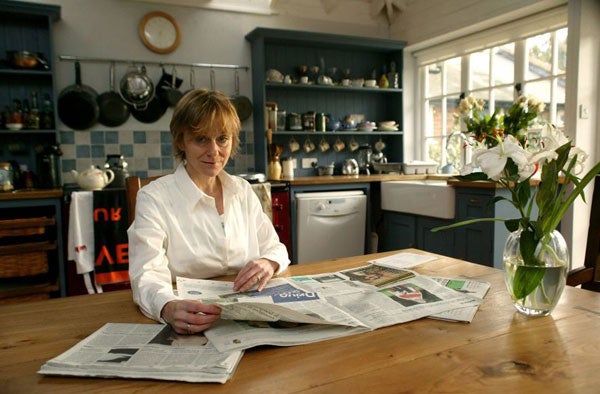The Winter House, By Nicci Gerrard

Your support helps us to tell the story
From reproductive rights to climate change to Big Tech, The Independent is on the ground when the story is developing. Whether it's investigating the financials of Elon Musk's pro-Trump PAC or producing our latest documentary, 'The A Word', which shines a light on the American women fighting for reproductive rights, we know how important it is to parse out the facts from the messaging.
At such a critical moment in US history, we need reporters on the ground. Your donation allows us to keep sending journalists to speak to both sides of the story.
The Independent is trusted by Americans across the entire political spectrum. And unlike many other quality news outlets, we choose not to lock Americans out of our reporting and analysis with paywalls. We believe quality journalism should be available to everyone, paid for by those who can afford it.
Your support makes all the difference.A warm fug of domesticity envelopes Nicci Gerrard's highly readable novels of family life and romantic entanglement. If it's hard to distinguish one book from another, that's because her characters could so comfortably inhabit one another's middle-class kitchens. In this her fourth solo work – she also co-writes thrillers as Nicci French – Gerrard examines how the intimacies and friendships of youth continue to exert their stranglehold well into middle age.
The narrative voice belongs to Marnie, a fortysomething museum curator who at the start of the novel finds herself summoned to the bedside of a dying friend. Marnie hasn't seen the mercurial Ralph since her early twenties, nor Oliver, the mutual friend who has rung with the news. It's with some trepidation, then, that she boards a plane from London to Scotland, unsure of what kind of reception awaits her.
Reunited in Ralph's loch-side cottage, Oliver and Marnie, once over the shock of their newly blurred features, roll up their sleeves to care for the now skeletal Ralph - washing and baking in a manic bid to stave off death and decay. Gerrard has always been at ease conjuring up the crises of adolescence, and, as the friends keep vigil by Ralph's bed, Marnie re-tells the story of the group's highly charged past, a love triangle with her teenage self at its heart.
In Ralph, Gerrard captures a familiar figure: a beautiful, highly-strung boy who flies too close to the sun. Escaping from a miserable family life, the young Ralph, Marnie recalls, gravitated to her seaside home, nourished by her mother's concern and chaotic cooking. As Ralph falls for Marnie, Marnie falls for Ralph's best friend, Olivier, a boy as solid as Ralph is volatile. In between misunderstandings and hurt the three friends abandon themselves to the pleasures of a semi-rural summer and the sheer intoxication of being 17.
Moving between past and present, Gerrard shows how thin the walls are that divide younger and older selves. Using her sleuthing talents to shine light on the more unknowable mysteries of the human heart, she combines engaging storytelling with a romantic sensibility that celebrates both the death-defying power of shared histories – and the healing properties of cheese on toast.
Join our commenting forum
Join thought-provoking conversations, follow other Independent readers and see their replies
Comments